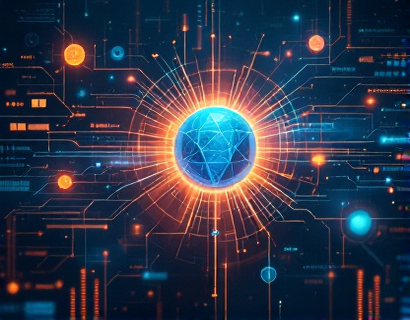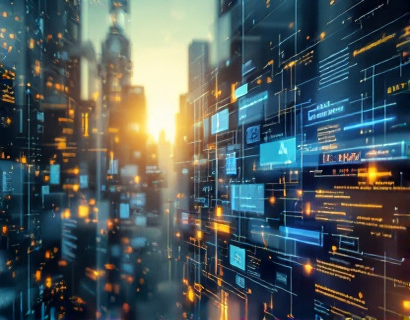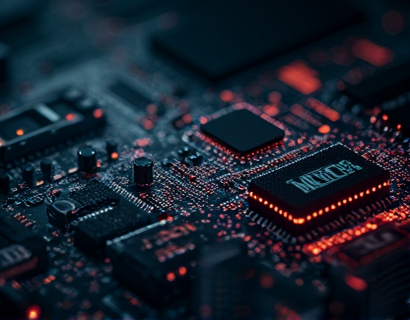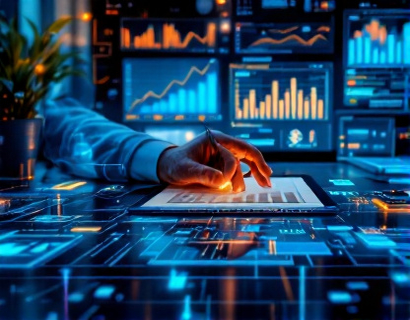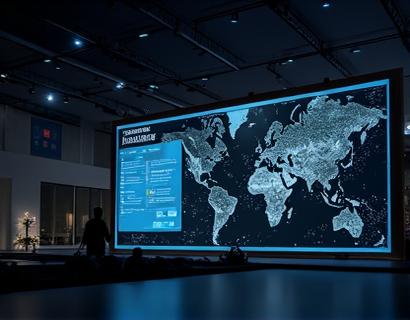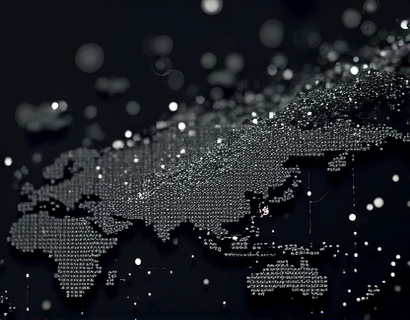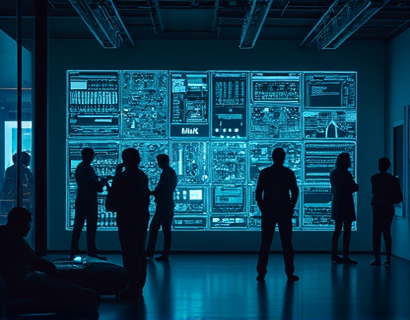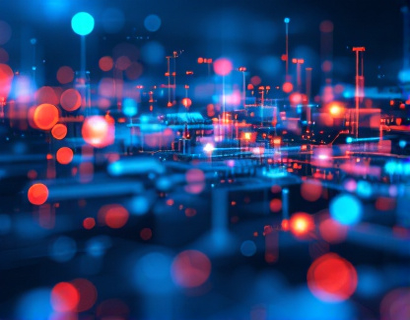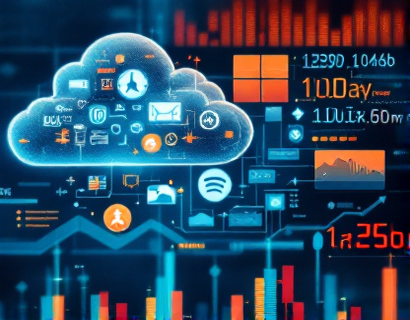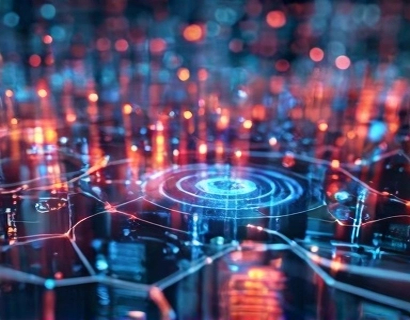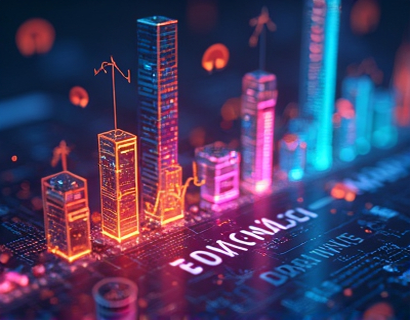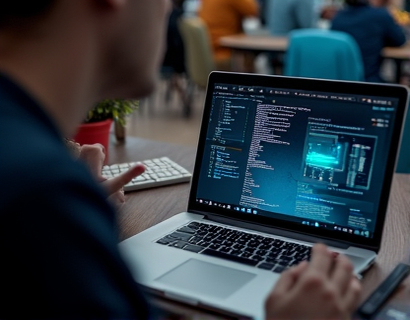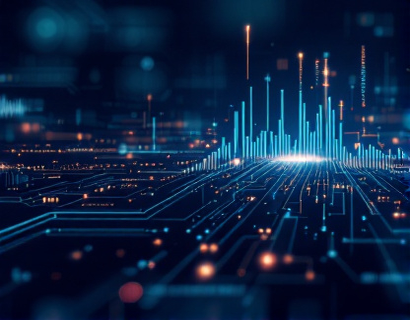Decentralized Productivity: Harnessing AI and Crypto for Next-Gen App Ecosystems and Enhanced User Experience
The integration of artificial intelligence (AI) and cryptocurrency is paving the way for a new era of decentralized productivity tools and app ecosystems. This transformative convergence is redefining how we approach tasks, collaboration, and user experience. By leveraging the strengths of both technologies, developers are creating innovative solutions that not only streamline productivity but also enhance the overall user experience. This article delves into the intricacies of this fusion, exploring its potential to revolutionize the digital landscape for tech enthusiasts, professionals, and early adopters of digital solutions.
The traditional centralized model of app ecosystems has several limitations. Centralized systems rely on a single entity to manage and control the network, which can lead to bottlenecks, security vulnerabilities, and a lack of transparency. In contrast, decentralized systems distribute control across a network of nodes, ensuring greater resilience, security, and user autonomy. When AI is integrated into these decentralized systems, the result is a powerful toolset that can adapt, learn, and optimize tasks in real-time, all while maintaining the integrity and privacy of user data.
One of the key benefits of decentralized productivity tools is enhanced security. In a decentralized network, data is not stored in a single location, making it significantly harder for hackers to target and breach. Cryptographic techniques ensure that transactions and data exchanges are secure and tamper-proof. This is particularly important for applications that handle sensitive information, such as financial transactions, personal data, and intellectual property. By using blockchain technology, these apps can provide end-to-end encryption and immutable records, giving users peace of mind about the safety of their information.
Another significant advantage of decentralized app ecosystems is improved scalability. Centralized systems often struggle with scalability as the user base grows, leading to slower performance and higher costs. Decentralized networks, on the other hand, can handle a larger number of users without a decrease in performance. This is because the load is distributed across multiple nodes, each contributing to the network's processing power. AI can further optimize this by dynamically allocating resources based on real-time demand, ensuring that the system remains efficient and responsive.
AI plays a crucial role in enhancing the user experience within decentralized app ecosystems. Machine learning algorithms can analyze user behavior and preferences to provide personalized recommendations and automate routine tasks. For instance, an AI-driven productivity app can learn an user's workflow and suggest optimal times for tasks, automate repetitive actions, and even predict potential issues before they arise. This level of customization and intelligence not only saves time but also reduces the cognitive load on users, allowing them to focus on more complex and creative aspects of their work.
Decentralized identity management is another area where AI and crypto converge to improve user experience. Traditional identity systems are often centralized and prone to breaches, leading to identity theft and fraud. Decentralized identity solutions use blockchain to create self-sovereign identities, giving users full control over their personal data. AI can enhance this by verifying identities through biometric data and behavioral patterns, ensuring that only authorized users access the system. This not only enhances security but also simplifies the login and authentication process, making it more user-friendly.
The combination of AI and decentralization also fosters innovation in the development of smart contracts. Smart contracts are self-executing contracts with the terms of the agreement directly written into code. When AI is integrated into smart contracts, they can become more adaptive and intelligent. For example, an AI-powered smart contract can automatically adjust terms based on real-time data, such as market conditions or user feedback. This flexibility and responsiveness make smart contracts more reliable and efficient, reducing the need for intermediaries and lowering transaction costs.
In the realm of collaboration, decentralized app ecosystems supported by AI can revolutionize how teams work together. Traditional collaboration tools often suffer from data silos and lack of interoperability. Decentralized platforms can integrate various tools and services seamlessly, creating a unified workspace where data flows freely and securely. AI can enhance this by providing intelligent suggestions and insights, helping teams make data-driven decisions and streamline their workflows. For instance, an AI-driven project management tool can analyze project data, identify bottlenecks, and propose optimized task assignments, all while ensuring that sensitive information remains secure and accessible only to authorized team members.
Energy efficiency is another critical aspect where decentralized and AI-driven app ecosystems excel. Centralized data centers consume a significant amount of energy, contributing to environmental concerns. Decentralized networks, particularly those powered by renewable energy sources, can reduce the carbon footprint of digital operations. AI can optimize energy usage by predicting and managing power consumption, ensuring that resources are used efficiently. This not only makes the system more sustainable but also reduces operational costs for users.
The economic model of decentralized app ecosystems is also worth exploring. In a decentralized system, users can be rewarded for their contributions through native tokens or cryptocurrency. This incentivizes participation and ensures that the network remains vibrant and active. AI can enhance this model by dynamically adjusting reward mechanisms based on user engagement and network needs. For example, during peak usage times, the system can increase rewards to attract more users and maintain network stability. This creates a more balanced and resilient ecosystem that benefits all participants.
For tech enthusiasts and professionals, the potential of decentralized productivity tools is immense. Developers can build on open-source platforms, leveraging AI and blockchain to create innovative applications that address specific pain points in various industries. The community-driven nature of decentralized projects fosters collaboration and rapid iteration, leading to faster development cycles and more robust solutions. For instance, a decentralized CRM (Customer Relationship Management) system can integrate AI to analyze customer data, predict behavior, and automate follow-ups, all while ensuring data privacy and security.
Moreover, the transparency and auditability of blockchain technology make it easier to track the development and deployment of apps. This level of transparency builds trust among users and stakeholders, as they can verify the integrity and functionality of the tools they use. AI can further enhance this by providing real-time analytics and performance metrics, allowing developers to continuously improve and optimize their applications based on user feedback and usage patterns.
In conclusion, the fusion of AI and cryptocurrency is ushering in a new era of decentralized productivity tools and app ecosystems. These innovations offer enhanced security, scalability, and user experience, while fostering a more inclusive and sustainable digital environment. As the technology continues to evolve, we can expect to see even more groundbreaking applications that transform the way we work, collaborate, and interact with digital solutions. For those eager to explore this exciting frontier, the future of decentralized productivity is not just promising—it's already here.





